Jonathan Plowright - Bach Piano Transcriptions, Vol. 6: Walter Rummel (2006)
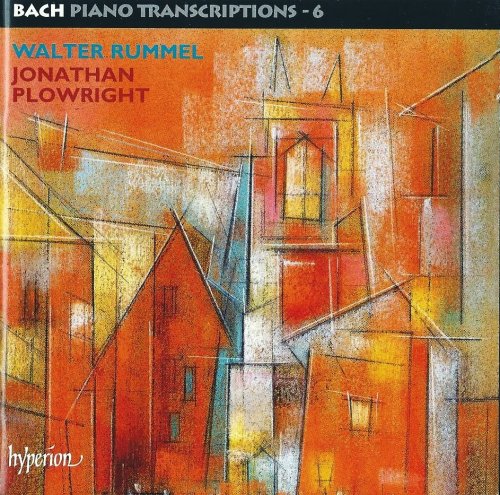
Artist: Jonathan Plowright
Title: Bach Piano Transcriptions, Vol. 6: Walter Rummel
Year Of Release: 2006
Label: Hyperion
Genre: Classical
Quality: FLAC (image+.cue,log,scans)
Total Time: 02:13:24
Total Size: 445 Mb
WebSite: Album Preview
Tracklist: Title: Bach Piano Transcriptions, Vol. 6: Walter Rummel
Year Of Release: 2006
Label: Hyperion
Genre: Classical
Quality: FLAC (image+.cue,log,scans)
Total Time: 02:13:24
Total Size: 445 Mb
WebSite: Album Preview
CD 1:
01. Cantata No. 22, "Jesus nahm zu sich die Zwölfe," BWV 22 (BC A48): Chorale. Ertödt' uns durch dein' Güte [0:03:44.73]
02. Cantata No. 26, "Ach wie flüchtig, ach wie nichtig," BWV 26 (BC A162): Overture. Ach wie nichtig, ach wie flüchtig [0:03:13.71]
03. Liebster Jesu, wir sind hier (V), chorale prelude for organ, BWV 731 (BC K134) [0:05:01.41]
04. Vater unser im Himmelreich (VI), chorale prelude for organ (by Georg Böhm, not JSB), BWV 760 [0:04:46.24]
05. Cantata No. 99, "Was Gott tut, das ist wohlgetan," BWV 99 (BC A133): Chorus. Was Gott tut, das is wohlgetan [0:05:24.56]
06. Das alte Jahr vergangen ist (I), chorale prelude for organ (Orgel-Büchlein No. 16), BWV 614 (BC K43) [0:03:30.45]
07. Cantata No. 4, "Christ lag in Todes Banden," BWV 4 (BCA 54): Chorale. Jesus Christus, Gottes Sohn [0:03:51.67]
08. Cantata No. 78, "Jesu, der du meine Seele," BWV 78 (BC A130): Duet. Wir eilen mit schwachen, doch emsigen Schritten [0:05:23.26]
09. Cantata No. 12 "Weinen, Klagen, Sorgen, Zagen", BWV 12 (BC A68): Sinfonia. Weinen, Klagen, Sorgen, Zagen [0:04:36.31]
10. Cantata No. 68, "Also hat Gott die Welt geliebt," BWV 68 (BC A86): Aria. Mein gläubiges Herze, frohlocke, sing, scherze [0:02:20.36]
11. Cantata No. 122, "Das neugeborne Kindelein," BWV 122 (BC A19): Aria. O Menschen, die ihr täglich sündigt [0:05:39.07]
12. Cantata No. 92, "Ich hab in Gottes Herz und Sinn," BWV 92 (BC A42): Aria. Das Brausen von den rauchen Winden [0:04:35.48]
13. Cantata No. 94, "Was frag ich nach der Welt," BWV 94 (BC A115): Aria. Die Welt ist wie ein Rauch und Schatten [0:04:39.63]
14. Cantata No. 201, "Geschwinde, geschwinde ihr wirbelnden Winde," BWV 201 (BC G46): Aria. Zu Tanze, zu Sprunge (Pan's dancing song) [0:07:40.12]
CD 2:
01. Cantata No. 146, -Wir müssen durch viel Trübsal,- BWV 146 (BC A70)- Overture. Wir müssen durch viel Trübsal [0:10:56.54]
02. Durchlauchtster Leopold, serenata for 2 voices, flute, bassoon, strings & continuo, BWV 173a (BC G9)- Leopold Serenata. Dein N [0:03:13.30]
03. Cantata No. 203, -Amore Traditore- (doubtful), BWV 203 (BC G51)- Cembalo Obbligato. Lass dich nimmer von der Liebe berücken [0:06:59.45]
04. Cantata No. 126, -Erhalt uns, Herr, bei deinem Wort,- BWV 126 (BC A46)- Aria. Stürze zu Boden [0:05:29.55]
05. Cantata No. 49, -Ich geh und suche mit Verlangen,- BWV 49 (BC A150)- Aria. Dich hab' ich je und je geliebt [0:05:31.57]
06. Cantata No. 94, -Was frag ich nach der Welt,- BWV 94 (BC A115)- Choral Overture. O Gott, du frommer Gott! [0:05:06.22]
07. Magnificat, for 5 voices, 5-part chorus, orchestra & continuo in D major, BWV 243 (BC E14)- Aria. Esurientes implevit bonis [0:04:07.42]
08. Cantata No. 129, -Gelobet sei der Herr,- BWV 129 (BC A93)- Choral Finale. Gelobet sei mein Gott [0:04:18.58]
09. Cantata No. 127, -Herr Jesu Christ, wahr' Mensch und Gott,- BWV 127 (BC A49)- Aria. Die Seele ruht in Jesu Händen [0:12:00.35]
10. Cantata No. 130, -Herr Gott, dich loben alle wir,- BWV 130 (BC A179)- Michaelis - Overture. Herr Gott, dich loben alle wir [0:05:13.07]
11. Weihnachtsoratorium (Christmas Oratorio), in six parts, BWV 248 (BC D7)- Chorale Prelude. Vom Himmel hoch, da komm' ich her [0:06:11.45]
Performers:
Jonathan Plowright – piano
In an age when even big-name soloists are trying their hands at historical-performance techniques, it's worthwhile to splash water on one's face from time to time and revisit the era when Bach's music served many performers simply as a stimulus to further creative activity. The piano transcriptions of Bach's music on this two-disc set are by Walter Rummel, a British-American pianist and composer of the interwar era whose mother was the daughter of Samuel Morse, the inventor of the telegraph. In the words of the excellent booklet notes by Charles Timbrell, he was "the personification of romanticism, a free-spirited individualist drawn constantly to the past, a dreamer always in pursuit of lofty ideals" -- which did not stop him from embracing fascism during World War II. His outlook was an extreme version of the Romantic religious impulse, and in a piece of writing quoted in the booklet he compares Bach's "chorales and arias to the rose windows of cathedrals, in which reflections continually change from brilliant major to somber minor." Never mind that the Lutheran Bach wouldn't have been especially pleased by the comparison! Technically, his piano transcriptions of Bach's music are in the league of Busoni's, with Bach's harmonies serving as structural frameworks for big extensions of pianistic space. Octave doublings and transpositions are rampant (Rummel is fond of moving blocks of Bach's music to the very top of the keyboard), and the pedals get a good workout. But what sets Rummel's transcriptions apart is that most of them (there are 25) are based not on keyboard works but on vocal pieces, mostly chorales and arias from cantatas. In attempting this feat, Rummel seems to have been motivated by specifically religious impulses. Boiling down orchestral textures to the keyboard gives Rummel the opportunity to create thick chords and big, Lisztian sounds. But in a way his biggest departure from Bach's spirit comes in lyrical arias like the "Esurientes implevit bonis" from the Magnificat, where Bach's lyricism is turned into a thoroughly Romantic piece of debilitated longing. Pianist Jonathan Plowright has taken a large body of unfamiliar and technically challenging music and mastered it beautifully. For some, Rummel's music will be the equivalent of scrawling on the Mona Lisa (sample CD 1, track 9 to find out whether you can take Rummel's booming, over-the-top version of "Weinen, Klagen, Sorgen, Zagen," from the Cantata No. 12); for others it will be a revelation. Whichever position one may adopt, there's no denying that this disc (part of a series devoted to piano transcriptions of Bach) captures an important but almost forgotten chapter in the story of how Bach's music has come down to the present day.
DOWNLOAD FROM ISRA.CLOUD
Jonathan Plowright Bach Piano Transcriptions, Vol. 6 Walter Rummel 06 0612.rar - 445.4 MB
Jonathan Plowright Bach Piano Transcriptions, Vol. 6 Walter Rummel 06 0612.rar - 445.4 MB
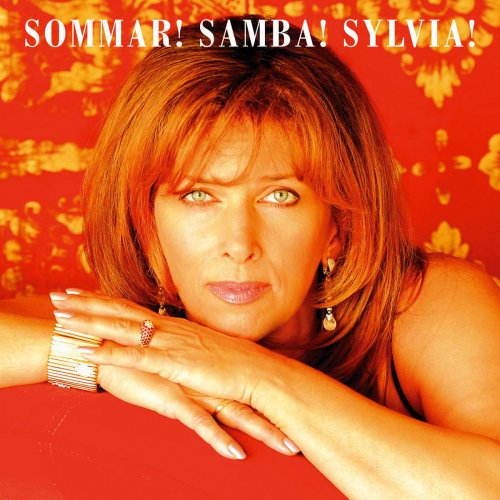


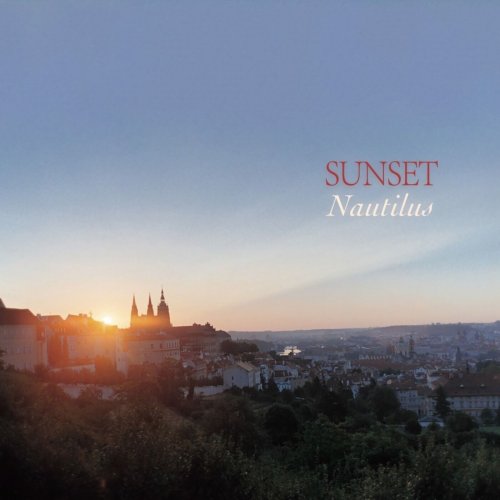

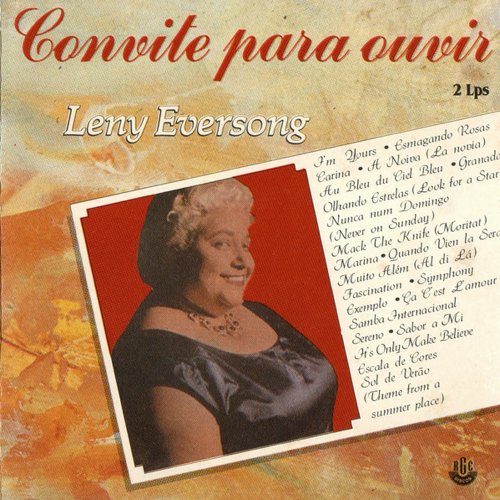
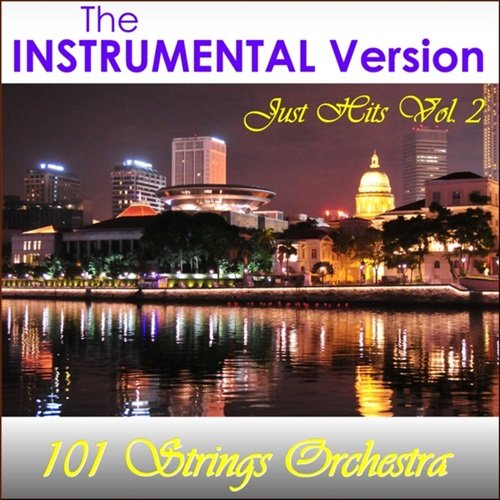

![Joachim Lyche - Primal Heuristics (2026) [Hi-Res] Joachim Lyche - Primal Heuristics (2026) [Hi-Res]](https://www.dibpic.com/uploads/posts/2026-03/1772436217_cff801v4shrqy_600.jpg)